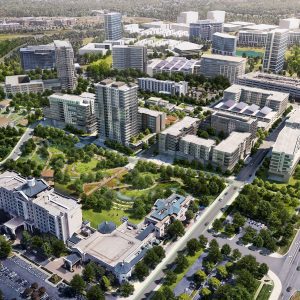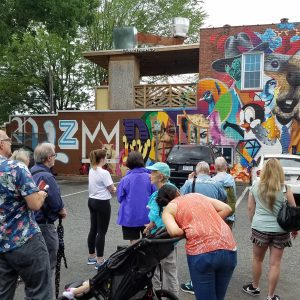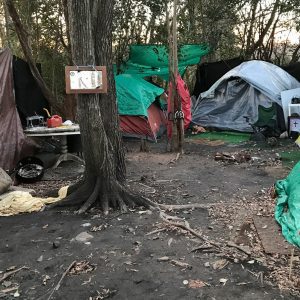Social Well-Being

Five maps that show stark health disparities in Mecklenburg County
Sharp differences in race and income are visible on a map of Mecklenburg County, generally in the familiar “crescent and wedge” pattern many Charlotteans are familiar with. For example, check out the divisions on this map of household income: But differences are also available in other, more unexpected dimensions as well. These five maps illustrate […]

A new local racial equity analysis tool highlights disparities in homelessness
In January 2019, the U.S. Department of Housing & Urban Development (HUD) released a Continuum of Care (CoC) Racial Equity Analysis Tool to help communities across the United States understand who is accessing local CoC systems and what outcomes are being achieved. Mecklenburg County Community Support Services, in partnership with UNC Charlotte Urban Institute, adapted […]

Data, urban agriculture and opportunity zones: Lessons from Milwaukee
Sometimes it can feel like the world is drowning in data: Big data, data mining, data science, data analytics and other buzzwords have become so familiar as to be cliches. But the meeting last week of the National Neighborhood Indicators Partnership, held in Milwaukee, was also full of reminders about the power of data to […]

From Ballantyne to SouthPark to University City, the suburbs want to be more like the city
It’s happening across Charlotte: Apartments, office buildings and restaurants are popping up in parking lots, as dense, mixed-use developments, connected by bicycle paths and walking trails, invade suburbia. Within the past month, major plans have been announced for densifying and transforming chunks of Ballantyne, SouthPark and University City – three of the biggest bastions of […]

Project documenting evictions’ toll in Mecklenburg wins national award
Tens of thousands of people a year are evicted in Mecklenburg County, but the full impact is hard to see. Court data on evictions is often incomplete or accessible only in paper files, difficult to compile and access. Demographic data on who is evicted, and for what reasons, is not comprehensively collected. There’s little tracking […]

Do youth end up in the justice system because they disengage from school?
Are youth who are disengaged from school more likely to enter the juvenile justice system – and does this vary for youth of different races and ethnicities? That was the question UNC Charlotte professor Dr. Susan McCarter set out to answer. Using data from the Institute for Social Capital, an integrated data system that’s part […]

Charlotte City Walks wraps up a record-setting year
Bilingual food tours, immersive experiences of Charlotte as a visually impaired or homeless person, strolls through cemeteries, public art and mural exlporations, visits to historic neighborhoods and connections with new people: All that and more was on tap at Charlotte City Walks this year. The UNC Charlotte Urban Institute organized a record number of free […]

Linking data to inform policy at the Institute for Social Capital
Data often lives in silos. At the Institue for Social Capital, part of the UNC Charlotte Urban Institute, researchers can find the links those silos might otherwise hide. The institute was profiled this week by EducationNC, as part of a series on data in education. The wide range of data available at the institute – […]

Is this road design a better way to move, or an outdated solution for traffic?
As Charlotte grows denser and more urban, parts of the city built decades ago on an auto-centric, suburban framework are struggling to both absorb more traffic and adapt to new beliefs about how people should get around. A one-mile stretch of congested road in fast-growing University City illustrates the tensions between balancing the needs of […]

Five maps that show inequality in Charlotte in surprising ways
Charlotte is familiar with the so-called “crescent” and “wedge,” the longstanding pattern of race, income and wealth distribution that shapes much of the city. Wealthier, and often more white, residents are concentrated in the wedge-shaped slice of south Charlotte, while an arc of lower-income communities stretches to the north, east and west. It’s an oft-referenced […]